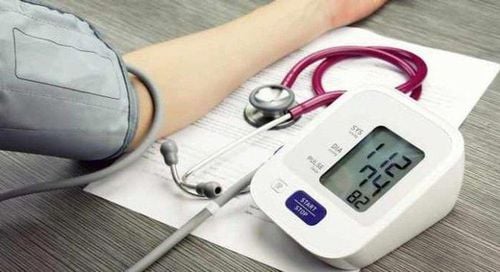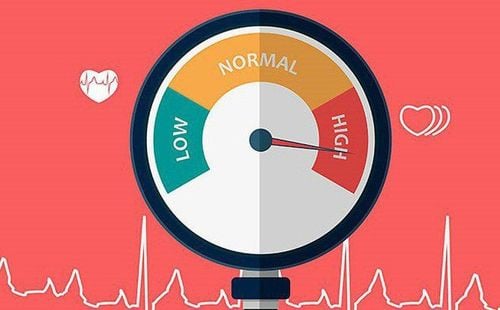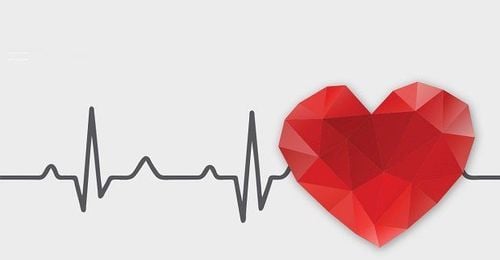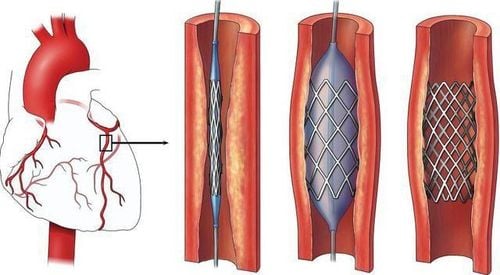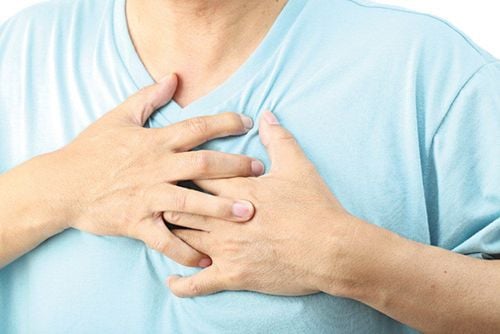When discussing hypertension, people often focus on overall blood pressure rather than the specific components. However, high diastolic blood pressure can lead to serious health complications that should not be overlooked.
1. What is High Diastolic Blood Pressure?
Blood pressure is determined by two values, usually written as a ratio. The first number (or the upper value) is the systolic blood pressure, and the second number (or the lower value) is the diastolic blood pressure. Diastolic blood pressure represents the pressure exerted by blood against arterial walls during the diastolic phase of the heart cycle (diastole), which is the lowest blood pressure level in the blood vessels. There are three types of hypertension: systolic hypertension, diastolic hypertension, and combined hypertension. Diastolic hypertension occurs when the lower value is elevated, defined as a diastolic pressure of 90 mmHg or higher. Isolated diastolic hypertension (IDH) is more commonly seen in young adults.
IDH defined as a systolic blood pressure (SBP) of < 130 mm Hg and a diastolic blood pressure (DBP) of at least 90 mm Hg
In most cases of IDH, no specific cause can be identified, which is referred to as primary hypertension. However, in some cases, IDH can result from an underlying disorder, such as thyroid disease, kidney disease, or obstructive sleep apnea.
When diastolic blood pressure is elevated, the blood vessels may become less elastic, stiffen, and develop atherosclerosis. Normal diastolic blood pressure typically ranges between 60–80 mmHg. If your diastolic blood pressure measures between 80–89 mmHg, special attention is needed, as this indicates pre-hypertension. Diastolic pressure can fluctuate throughout the day. Patients should measure their blood pressure several times a day to obtain an average reading. Factors influencing diastolic pressure fluctuations include: Nicotine use; stress levels and exercise; body posture…
2. Causes of high diastolic blood pressure
Several factors contribute to high diastolic blood pressure, including:
Age and gender: The most significant risk factor is age, affecting 90% of hypertensive patients. Men over 45 and women over 55 are at higher risk. However, hypertension is becoming increasingly common among adolescents. Men are generally more at risk than women.
Family history: A family history of hypertension significantly increases the risk.
Obesity: About one-third of hypertensive patients are overweight or obese. Overweight adults are twice as likely to develop high diastolic blood pressure compared to those with a normal weight. Obese children and adolescents are at increased risk of developing hypertension as they age.
Obstructive Sleep Apnea: A condition where breathing repeatedly stops during sleep. Most hypertensive patients also suffer from sleep apnea.

Lifestyle: Smoking and heavy alcohol consumption increase the risk of high diastolic blood pressure. A diet low in potassium and high in sodium can exacerbate the condition. Sedentary lifestyles can lead to weight gain, increasing the risk of hypertension. Mental and physical stress can temporarily raise blood pressure.
Health disorders: Certain medical conditions make hypertension more difficult to manage, such as kidney disease, diabetes, and endocrine disorders.
Medications: Many medications can temporarily elevate blood pressure or worsen existing hypertension, such as: Nonsteroidal anti-inflammatory drugs (NSAIDs) like naproxen, aspirin, and ibuprofen; Oral or intravenous corticosteroids; Birth control pills; Pain relievers containing pseudoephedrine.
3. Symptoms of High Diastolic Blood Pressure
Hypertension, often referred to as "the silent killer," can be difficult to detect due to its subtle signs.
Here are key indicators to be aware of:
Dizziness
Headache
Night sweats
Difficulty sleeping
Nosebleeds
Heart palpitations
Nausea
Blurred vision
High diastolic blood pressure differs from high systolic blood pressure or combined hypertension. It is often well-managed through lifestyle changes, although your doctor may recommend medication in some cases.
4. Complications of High Diastolic Blood Pressure
Isolated diastolic hypertension significantly increases the risk of serious cardiovascular complications. A study published in the Journal of Hypertension noted that adults with IDH have twice the risk of cardiovascular events, including heart attack, stroke, or death from heart-related causes, compared to those with normal blood pressure.
5. Preventing High Diastolic Blood Pressure

Routine blood pressure checks: Get regular check-ups during health screenings or visits to medical facilities. Personal electronic blood pressure monitors are effective tools for patients with hypertension or those at risk to keep track of their condition and that of family members.
Adopt a healthy diet: Limit salt intake to less than 5g per day; Increase consumption of fresh vegetables and fruits; Avoid foods high in cholesterol and saturated fats; Ensure adequate potassium and trace elements in your diet.
Maintain a healthy weight: Aim for a BMI of 18.5–22.9; Keep your waist circumference under 90 cm for men and 80 cm for women. Actively work on weight loss if you are overweight.
Avoid excessive alcohol consumption. Completely quit smoking or using rustic tobacco products.
Increase physical activity: Engage in moderate exercise like walking or cycling for 30–60 minutes daily.
Reduce stress: Manage mental and physical stress through relaxation and sufficient rest. Avoid sudden exposure to cold temperatures.
For individuals with combined or isolated diastolic hypertension, early detection through regular screenings is crucial. In addition to lifestyle modifications, patients should receive long-term monitoring and treatment under a physician’s guidance to reduce the risk of complications and maintain healthy blood pressure levels.
Vinmec International General Hospital offers a comprehensive Hypertension Screening Package, allowing customers to proactively monitor and manage their blood pressure. Doctors analyze test results to determine the causes of blood pressure fluctuations and potential health risks, enabling timely preventive measures.
To arrange an appointment, please call … or make your reservation directly HERE. You may also download the MyVinmec app to schedule appointments faster and manage your reservations more conveniently.




